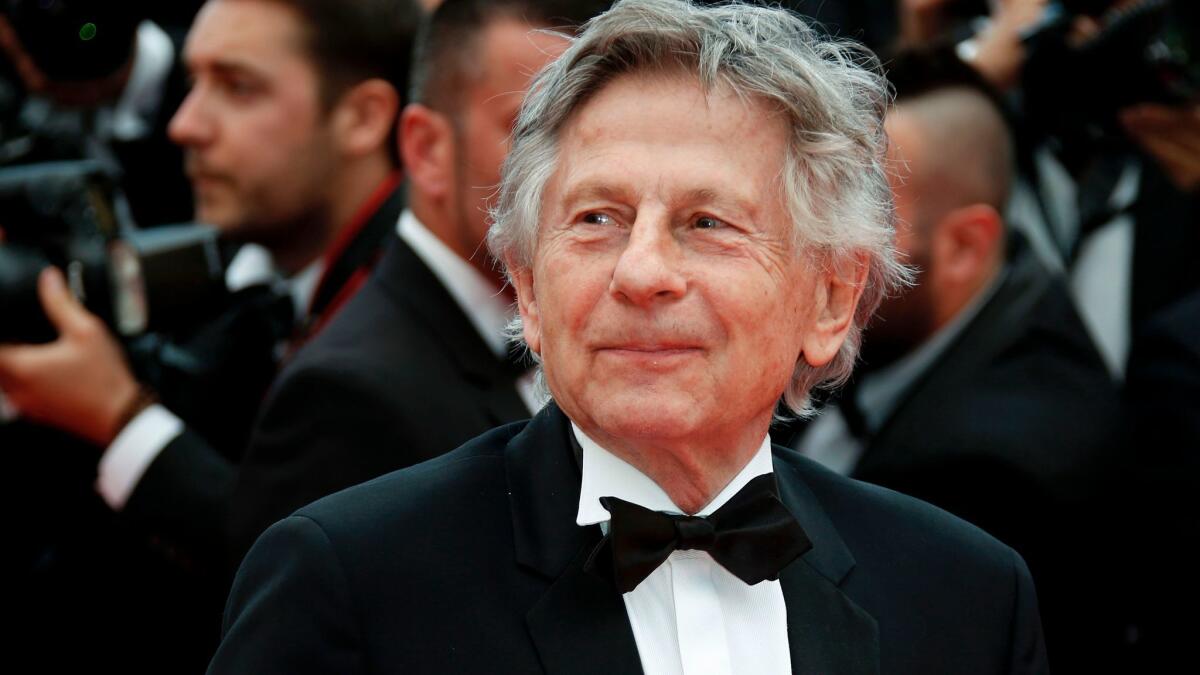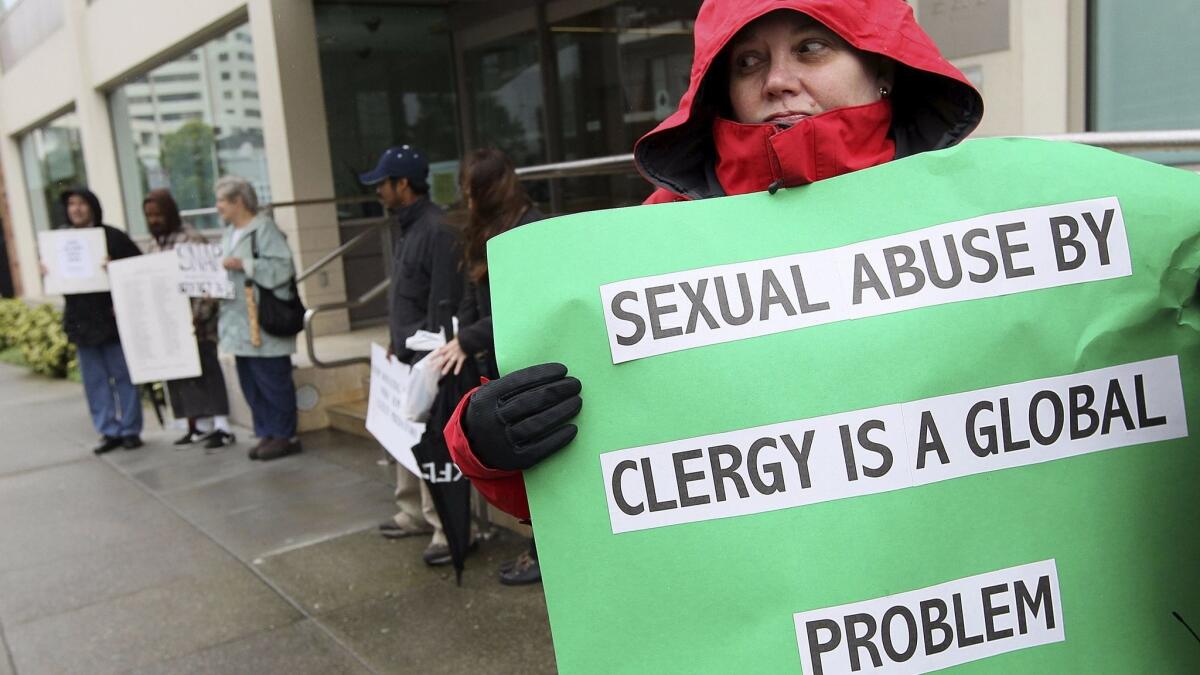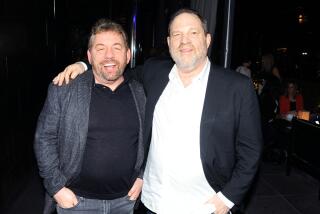Column: Priest sex abuse and Hollywood sexual harassment scandals: Cultures of cover-up, cruelty and corruption
Eight years ago, producer Harvey Weinstein and a horde of Hollywood moguls and celebrities banded together in defense of child molester Roman Polanski.
The Polish director, who fled the U.S. in 1977 before being sentenced for forcing himself on a 13-year-old girl, had just been arrested while attending a film festival in Switzerland. The Weinstein gang was outraged at the disruption of the festival, among other things, and demanded Polanski’s release.
My, how times have changed.
Hollywood has now turned against Weinstein, who has been accused of sexual misconduct by more than 50 women. It must be true that sunshine is the best disinfectant, because in the days since the Weinstein accusations oozed out, many more allegations have been made. Weinstein has not been charged with a crime but several investigations have been launched into some of the allegations. More than 200 women have come forward with claims of sexual harassment against writer-director James Toback. He has denied the allegations initially reported in a Times story, then declined to comment on additional accusations.
So how did this alleged behavior go on for so long?
The rules don’t apply
“I think men in power in most big businesses — Hollywood, Wall Street, politics, etc. — see themselves in a world where rules don’t apply,” said one producer I know.
And how does an entire industry go from denial to denunciation in just eight years?
“Maybe that’s the new norm,” said former Los Angeles County Dist. Atty. Steve Cooley, who called me last week to talk about the Polanski case and about Weinstein’s role in defending him.
Cooley said the long-running abuse of women by powerful men in Hollywood echoes the Catholic Church’s pedophilia scandal, which his office investigated for years, fighting against church leaders who refused to turn over documents.
He’s onto something. In each institution, sex, money, career opportunity and public image are powerful forces that breed corruption, arrogance and abuse. The church and the entertainment industry were populated by people who knew what was up, but had reason to enforce a code of silence, if not to actively engage in cover-ups.
“I think it’s very similar. In the pedophile priest culture, people just didn’t talk,” said Cooley.
Victims were shamed, or threatened, or so damaged they didn’t know who to tell or what to do.
“And then all of a sudden it exploded. There was a change in attitude and people said, ‘We’re going to come forward.’ In Hollywood, in Sacramento, and now there are even new Polanski accusers.”

‘So-called crime’
I had forgotten about Weinstein’s involvement in the Polanski case until Cooley reminded me. I did recall, however, that I couldn’t understand in 2009 why Hollywood was being so forgiving of Polanski. So in September of that year, I called the D.A. and asked to see the Polanski file. Were there extenuating circumstances? Had the allegations against the world-famous director been overblown?
Whoopi Goldberg said what Polanski did was not a case of “rape-rape,” whatever that was supposed to mean. There were even some who suggested the victim had a sexual history, as if that made it OK for a man in his 40s to take advantage.
Woody Allen, who had married his own girlfriend’s adopted daughter, signed a petition demanding Polanski’s release. Martin Scorsese, David Lynch, Debra Winger and other A-listers signed on, too.
And Weinstein urged “every U.S. filmmaker to lobby against any move to bring Polanski back to the U.S.” for sentencing. He referred to Polanski’s abuse of his ninth-grade victim as a “so-called crime.”
So-called crime?
Either Polanski’s apologists didn’t know the details of what he’d done, or they did know, but it didn’t matter to them. When I saw what was in the file, I couldn’t believe Polanski hadn’t been locked up for years.
In the transcripts of grand jury testimony, Polanski’s victim said the director had given her some Champagne and a Quaalude and told her to take off her blouse. This took place at the home of Jack Nicholson during what was supposed to be a photo shoot for a French magazine.
The 13-year-old said she was afraid of Polanski and repeated that she had to go home. She testified that he kissed her and she told him to stop and to keep away. He pulled off her panties, started to have intercourse with her, then switched to anal sex when she told him she was not on the pill.
Polanski was indicted on charges of rape, sodomy and furnishing drugs to a minor. But the victim’s family asked the district attorney’s office to spare her the trauma of testifying at trial, so Polanski was offered a deal and pleaded guilty only to unlawful intercourse. He served 42 days in prison, where he underwent diagnostic testing. When he was released prior to formal sentencing, he fled. His defenders said he’d met the terms of his deal with the judge, but feared he’d be locked up longer because of public pressure. So he ran.
Weinstein argued in an op-ed for a British newspaper that Cooley’s attempts to bring Polanski back to Los Angeles for sentencing represented a miscarriage of justice.
“I think the reason we can all be on Polanski’s side over this is not to do with what happened in 1977,” Weinstein wrote. His argument was that Polanski had already served his time.

I don’t care what year you’re talking about — 1977, 2009 or 2017. Raping a child is a heinous crime, and you have to be warped beyond redemption to argue that a six-week sentence is justice.
In his essay, Weinstein argued that Polanski was a Holocaust survivor whose wife, Sharon Tate, had been murdered by the Manson gang. And yet despite such tragedies, Weinstein said, Polanski became “a great artist and continues to make great films.”
“I’m not too shy to go and talk to the governor of California, Arnold Schwarzenegger, and to ask him once and for all to look at this,” Weinstein wrote. “They are doing this because they want to make a circus, to make their toughness overt — and this is where I draw the line.”
I’m not going to suggest that Hollywood can, or ever will, clean itself up entirely. But women have stepped forward, predators are on notice. And these days, it’s not Weinstein who’s drawing the lines.
Get more of Steve Lopez’s work and follow him on Twitter @LATstevelopez
ALSO
As Harvey Weinstein scandal spreads, talent agencies and guilds face tough questions
Rose McGowan delivers fiery speech at inaugural Women’s Convention: ‘It’s time to rise’
Robin Abcarian: How to snuff out the grotesque epidemic of sexual harassment? Start early
More to Read
Sign up for Essential California
The most important California stories and recommendations in your inbox every morning.
You may occasionally receive promotional content from the Los Angeles Times.











